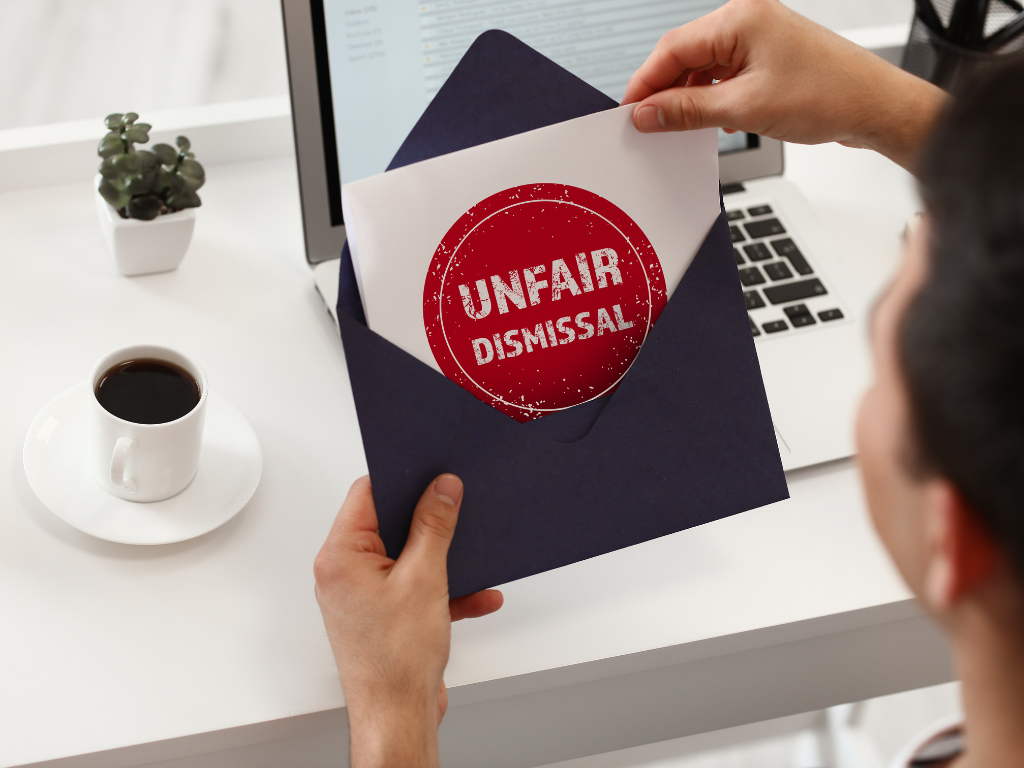Call us now:
The practical resolution of individual labor disputes in Vietnam is becoming increasingly common, especially regarding wages and termination of employment contracts. Although the law has established dispute resolution procedures to protect workers, reality shows that there are still many limitations that make the protection of rights ineffective.

Principles of Resolving Individual Labor Disputes in Vietnam
According to Article 180 of the 2019 Labor Code on the principles of resolving labor disputes, the process requires adherence to the following fundamental principles:
- The parties in a labor dispute should be encouraged to resolve the issue through direct negotiation with mutual respect and autonomy.
- Priority should be given to using mediation and arbitration methods to ensure fairness, honor the rights of both parties, and align with social interests without violating the law.
- Ensure the process is open, transparent, and decisions are made quickly and accurately according to the law.
- Ensure that representatives of all involved parties are present throughout the labor dispute resolution process.
The decision to resolve a labor dispute will be made by the relevant authorities, organizations, or individuals when requested by one of the disputing parties or upon the recommendation of a competent authority with the consent of all involved parties.
Authorities and Organizations Involved in Resolving Individual Labor Disputes in Vietnam
Article 181 of the 2019 Labor Code specifies the roles of state agencies and organizations in handling labor disputes. Specifically, state labor management agencies, along with organizations representing workers and employers, will provide guidance, support, and necessary assistance to the involved parties during the dispute resolution process.
Upon receiving a dispute resolution request, the specialized labor agency at the People’s Committee at various levels will be the first to receive and categorize the request, then guide the parties to labor mediators, labor arbitrators, or courts depending on the nature of the dispute. They are obligated to transfer the request to the appropriate authorities or provide specific guidance to the parties within five working days.
Additionally, according to Article 212 of the Labor Code, the duties of state management agencies include not only issuing and implementing labor laws but also inspecting, monitoring, and handling labor law violations, as well as resolving complaints, denunciations, and labor disputes in accordance with legal regulations.
Rights and Obligations of the Parties in the Process of Resolving Individual Labor Disputes in Vietnam
Article 182 of the 2019 Labor Code clearly defines the rights of the involved parties in the labor dispute resolution process:
- The parties have the right to participate in the dispute resolution process either directly or through representatives.
- The parties have the right to withdraw or change the content of the resolution request.
- The parties can request to change the dispute resolver if there are grounds to believe that the person is not objective or impartial.
Article 182 also stipulates the obligations of the involved parties in providing relevant documents and evidence to the competent dispute resolution authorities and strictly complying with the decisions and judgments of labor arbitrators and competent courts.

Practical Resolution of Individual Labor Disputes in Vietnam
Recently, although the number of individual labor disputes has tended to increase, very few of them have been brought to mediation by mediators or arbitration councils. This does not fully reflect the actual occurrence of disputes. One reason is that many companies, especially state-owned enterprises and large companies, have proactively facilitated internal dispute resolution through trade unions or on-site mediation councils. Additionally, workers often hesitate to contact state agencies, while employers prioritize maintaining their image and business achievements over seeking formal mediation solutions.
Meanwhile, the mediation process at the court is carried out strictly and accurately, with a team of judges skilled in mediation and an increasingly willing attitude from the involved parties. According to the 2021 report of the Supreme People’s Court, the successful mediation rate at court reached 79%, reflecting consideration of both parties’ interests and the protection of autonomy. This high result not only helps resolve conflicts but also minimizes the time and costs arising from the complex litigation process in court.
Despite certain progress, the labor dispute resolution process still faces many difficulties. Particularly, some businesses continue to violate labor laws, including those related to insurance, wages, working hours, and rest time, affecting employees’ rights and causing disputes. Furthermore, non-compliance with legal complaint procedures has become common and increasingly complex. Support and management from state agencies regarding labor relations have not yet met practical needs.
Moreover, the implementation of labor dispute mediation by mediators and arbitration councils also faces obstacles due to limited human resources and violations of mediation deadlines as stipulated in the Labor Code. Mediators and arbitration councils, often civil servants of district-level Labor, Invalids, and Social Affairs offices, face high work pressure and do not have enough time to thoroughly resolve all disputes. As a result, some disputes, despite the intervention of mediators and arbitration councils, are resolved formally and do not achieve the desired outcomes, failing to fully realize the objectives of the mediation process.
The skills and knowledge of many mediators in the labor field remain limited, partly due to the constant changes in labor laws not accompanied by regular training and professional update programs. Additionally, although many disputes occur, actual information about the cases is often not fully captured by management agencies, relying only on annual reports from businesses, making it difficult to understand the actual labor dispute situation.
Contact Us Now:
DCNH LAW
Address: 38B Tran Nhat Duat, Phuoc Hoa ward, Nha Trang city, Khanh Hoa province, Vietnam.
Phone: (+84) 343320223 – 974278893
Email: dcnh.law@gmail.com




